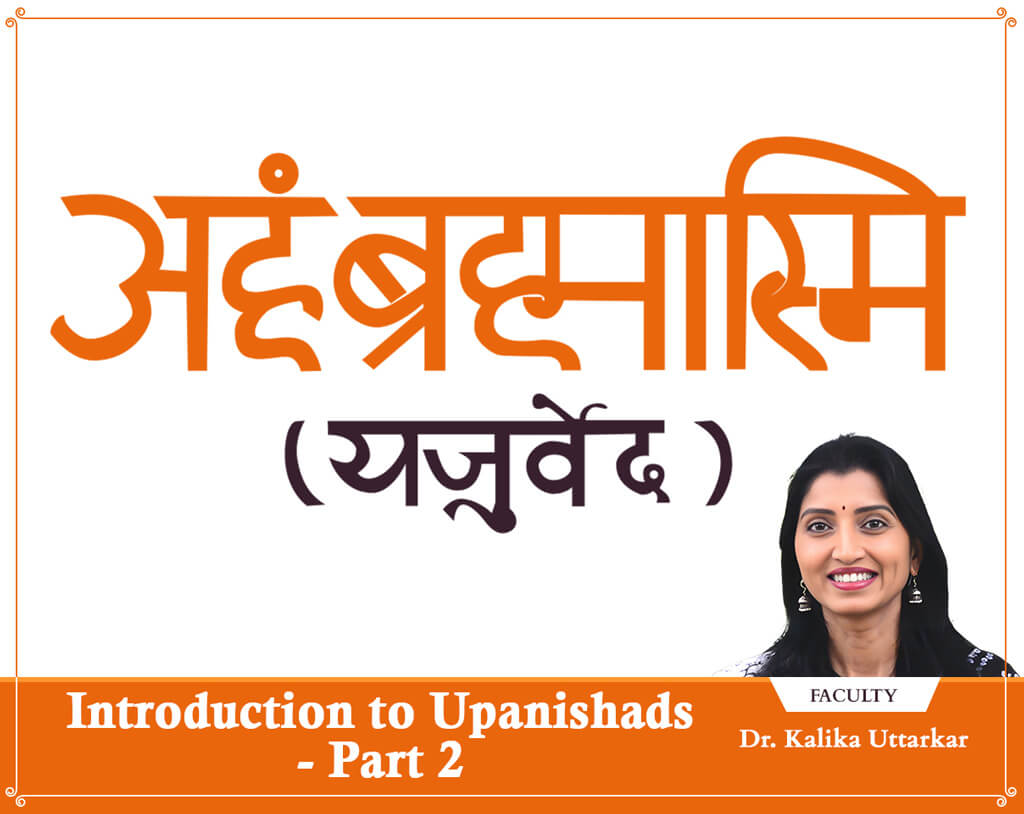
Annual Giving Campaign - 2023-2024 is under way. Donate today by Clicking Here, and help us reach our goal.
So far, $897,915 has been raised out of a target of $ 5 Million. Click Here to donate today and help us reach our goal.

$300.00

This course is part of the following programs:
Admission into program of study

In this course Introduction to Upanishads students will be able to:

Upanishads constitute the foundation of Hindu culture and civilization. The study of Upanishads is central to the discovery of Hindu philosophical thought and its immediate relevance. They are timeless i.e., Sanatana. They speak to each individual freshly and newly at every stage of life. Each encounter with the Upanishads unfolds our understanding of the meaning and purpose of human life in a deeper and broader sense.
Introduction to Upanishads is a 2-course sequence consisting of two parts. The 2 parts can be taken in either sequence.
Part 1 will introduce the first six Upanishads: Isha, Kena, Katha, Prashna, Mundaka and Mandukya
Part 2 will introduce the next five Upanishads: Taittiriya, Aitareya, Chandogya, Brhadaranyaka, and Shvetasvatara Upanishad.
The course ‘Introduction to the Upanishads’ will introduce different Upanishadic dialogues and stories reflecting philosophical understanding of the concepts like Brahman, Aatman, Creation, Universe, Bondage, Moksha, Karma, Immortality, and Anand. This course aims to explore and understand the roots of Hindu philosophy and its contemporary relevance in our life.
There will be a minimum of 1 contact hour with one or more faculty every week. The class is structured in a way that promotes discussion and debate based on self-study and reflection each week. While the content being discussed in each class will be concluded within 60 minutes, the discussion time will be free format and can continue for an additional 30 minutes maximum. During the course, students will be required to submit two short essays. They need not be academic quality papers – but should be based on students’ self-reflection on what they have learnt and assimilated so far.
The Principal Upanishads, translated and edited by Swami Nikhilananda. This is an abridged form of four volumes of the same writer. You can also refer to the main four volumes for deeper study.
or
For original text and translation, you can refer to – The Principal Upanishads 2012 edition by Swami Sivananda.
$300.00

Sign-up for HUA communications
Main Campus:
Administrative Office:
Sign-up for our free webinars
"*" indicates required fields


